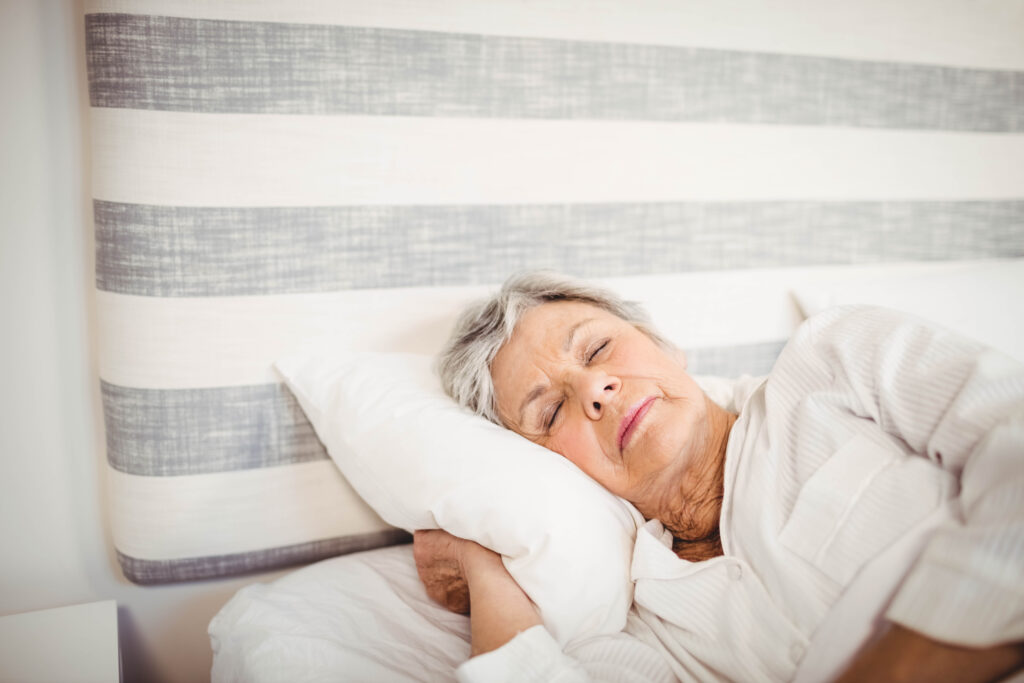Nyctophobia, also known as fear of the dark, is a condition that can affect people of all ages, including the elderly. This fear of the dark can manifest itself in a variety of ways, from mild anxiety to intense panic attacks when confronted with dark environments. Common symptoms include tachycardia, excessive sweating, shortness of breath and an overwhelming sense of dread.
The causes of nyctophobia in older people can vary, ranging from traumatic experiences in the past to the loss of visual or hearing ability associated with aging. Factors such as loneliness, generalized anxiety or even medical conditions such as dementia can contribute to the intensification of this fear.
Combating nyctophobia in the elderly involves addressing both the emotional and physical aspects, through cognitive-behavioral therapies, psychological support, and the implementation of practical measures in the home environment to create a safe and comfortable environment at night.
Nyctophobia in the elderly
Nyctophobia in the elderly can have a significant impact on their quality of life and emotional well-being. This fear of the dark can generate a sense of vulnerability and anxiety, affecting sleep and nighttime rest.
It is common for nyctophobia to develop in older people who have experienced trauma or stressful events in the past, such as personal loss, serious illness or significant changes in their environment.
Loneliness and anxiety can also be triggers, as older people may feel more vulnerable in the dark when alone. It is essential to address this fear sympathetically and offer support on both an emotional and practical level to improve the quality of life for older people experiencing nyctophobia.
Symptoms of nyctophobia in the elderly
- Tachycardia: Increased heart rate, a common response to fear experienced during exposure to darkness.
- Excessive sweating: Nyctophobia can trigger a physiological response that manifests itself in excessive sweating, related to anxiety.
- Shortness of breath: The feeling of fear can lead to rapid and shallow breathing, generating a sensation of shortness of breath or difficulty breathing.
- Muscle tension: Muscle tension is another common symptom, as the body may react to fear by contracting muscles, which can cause discomfort and stiffness.
- Insomnia: Nyctophobia can interfere with the ability to fall asleep, resulting in insomnia and sleep fragmentation during the night.
- Avoidance of darkness: Older people with nictophobia may avoid dark situations or spaces, disrupting their routine and limiting their nighttime activities.
- Catastrophic thoughts: Nychophobia can generate irrational and catastrophic thoughts related to darkness, contributing to anxiety and emotional distress.
- Increased generalized anxiety: The presence of nyctophobia can contribute to a generalized increase in anxiety, affecting not only nighttime experiences, but also the quality of daily life.
Causes of fear of the dark
- Traumatic experiences: Past experiences, such as traumatic events related to the dark, can trigger fear of the dark in older people.
- Changes in visual and hearing health: Loss of vision or hearing associated with aging may increase the sense of vulnerability in dark environments, contributing to the development of nyctophobia.
- Loneliness: Older people living alone may experience an increased fear of the dark due to the feeling of isolation and lack of companionship at night.
- Mental illness: Conditions such as anxiety, depression or dementia can intensify fear of the dark in older people.
- Environmental changes: Moving or significant changes in the environment can trigger fear of the dark in older people, as they face the unknown in the gloom.
- Safety concerns: Fear of the dark may arise as older people become concerned about their personal safety, fearing falls or accidents in dark environments.
- Recent stressful events: Stressful events such as the loss of a loved one, serious illness or major life changes may contribute to the development of nyctophobia.
- Genetic factors and personal predisposition: Some older people may have a genetic or personal predisposition that makes them more prone to developing fear of the dark.
How is it combated and is there a treatment?
Nyctophobia can be treated and managed in a variety of ways. Here are some common strategies to combat this fear in older people:
- Cognitive behavioral therapy (CBT): CBT is an effective psychotherapeutic approach used to address and change negative thought patterns and behaviors associated with nyctophobia. Working with a therapist can help older people understand and overcome their fears of the dark.
- Gradual exposure: Controlled, gradual exposure to dark situations can help desensitize older people to fear. This involves progressively confronting the dark environment in small steps, allowing the person to become accustomed to it and reduce the associated anxiety.
- Safe environment: Creating a safe home environment at night can be critical. Using soft night lights, keeping the space tidy to avoid tripping, and making sure the person feels comfortable and safe in their environment can reduce the intensity of fear.
- Emotional support: Emotional support from friends, family or even support groups can be crucial. Talking about fears and concerns can ease the emotional burden and provide a space to understand and address fears.
- Relaxation techniques: Practices such as deep breathing, meditation and progressive muscle relaxation can help older people manage the anxiety associated with nyctophobia.
- Medical consultation: In some cases, it may be helpful to consult a health care professional, such as a physician or psychiatrist, to assess for underlying medical conditions or to consider medication options in more severe cases.
In conclusion, nyctophobia in the elderly is an emotional challenge that can significantly affect their quality of life. However, with therapeutic approaches, emotional support and environmental adjustments, it is possible to combat this fear of the dark. For even more comprehensive and personalized care, advanced telecare from SICOR Telecare El Corte Inglés offers innovative solutions for the well-being of the elderly. SICOR telecare El Corte Inglés technology provides peace of mind and security, allowing users to count on immediate assistance in emergency situations.

